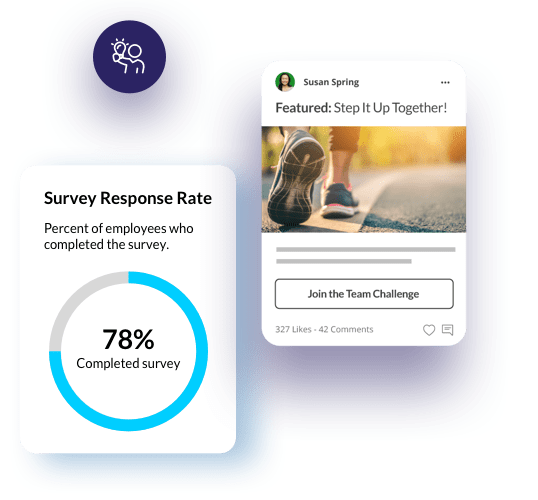Blog Post
Communication is Key to Helping Employees Cope With Change

Explore more in Employee Communications

Blog Post | Employee Communications
4 ways HR leaders can use employee communications to support well-being and engagement
Learn how employee communications that reach the right person at the right time with the right message improve well-being and engagement.

Blog Post | Company Culture
Work-life harmony: A new philosophy for the modern workforce
Explore the paradigm shift toward work-life harmony, along with 4 ways to foster it within your organization.

Blog Post | Employee Well-Being
How to improve benefits utilization with an employee well-being program
Learn the top 4 barriers preventing employee benefits utilization so you can drive awareness and boost participation.

Blog Post | Employee Well-Being
Boost your benefits team’s productivity by 2.3x
Find out how a benefits team of three can do as much as a team of seven using their Limeade well-being program.
Explore more blog posts from this author

Blog Post | Employee Well-Being
6 Steps to develop an effective wellness incentives and rewards plan
To create a successful wellness incentive program, it’s crucial to understand that it takes a thoughtful approach of both intrinsic and extrinsic rewards for employees.

Blog Post | Employee Communications
4 ways HR leaders can use employee communications to support well-being and engagement
Learn how employee communications that reach the right person at the right time with the right message improve well-being and engagement.

Blog Post | Employee Well-Being
How to improve employee well-being
In today’s world of work it's essential to understand how to improve employee well-being. Get our top 5 tips you can put into action today.

Blog Post | Product Updates
LimeTime session recap: The Manager Experience: Empowering Your Essential Leaders
Learn why managers are essential for unlocking your organization's true potential in increasing employee engagement and reducing turnover.




